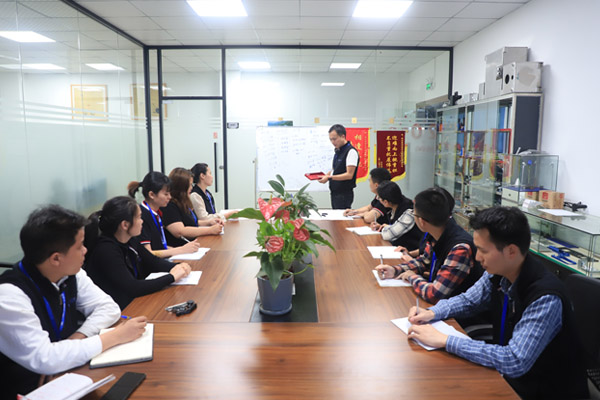15 years one-stop China custom CNC machining parts factory

Hey there I’m VMT Sam!
With 25 years of CNC machining experience we are committed to helping clients overcome 10000 complex part-processing challenges all to contribute to a better life through intelligent manufacturing. Contact us now
 102 |
Published by VMT at Mar 14 2024
102 |
Published by VMT at Mar 14 2024
Dealing with CNC Machining Lead Time Delays: Strategies for Success
In the realm of CNC machining part manufacturing, lead time delays are a common yet challenging issue. CNC machining lead time delays not only affect customer satisfaction but can also lead to increased production costs and resource wastage. Therefore, understanding the reasons behind lead time delays and implementing corresponding measures is crucial for CNC machining factories.

I. Common Causes of CNC Machining Lead Time Delays
Surge in Order Volume: When CNC machining factories receive orders surpassing their production capacity, it often leads to lead time delays.
Technical Challenges: Complex or high-precision CNC machining parts may require additional time for research and development, causing lead time delays.
Supply Chain Management Issues: Problems like insufficient raw material supply or delayed deliveries from suppliers can result in CNC machining lead time delays.
Equipment Failures: Malfunctions in critical equipment such as CNC machines directly impact production schedules, causing delays.
Lack of Skilled Labor: Shortage of skilled workers, inadequate training, or employee turnover can contribute to lead time delays.
II. Strategies for Addressing CNC Machining Lead Time Delays
Advance Planning and Management:
Forecast and plan production capacity in advance to ensure realistic scheduling when accepting orders.
Effectively manage the supply chain to guarantee a stable supply of raw materials.
Enhanced Internal Communication and Collaboration:
Strengthen communication and collaboration among different departments to ensure information flows smoothly.
Promptly address issues by taking coordinated measures across relevant departments.

Skill Enhancement and Training:
Invest in training programs to enhance the skills of CNC machining factory workers, improving efficiency and job satisfaction.
Optimization of Production Processes and Technology:
Introduce advanced production technologies and equipment to optimize processes, boost efficiency, and reduce lead time risks.
Regularly maintain and service equipment to minimize the occurrence of failures.
External Support and Partnerships:
Establish close relationships with suppliers, customers, and other stakeholders to collaboratively address challenges.
Seek external support when necessary, such as outsourcing certain production tasks or forming strategic partnerships.
III. Case Study
Consider a CNC machining factory that faced lead time challenges. They implemented the following measures:
Order Management: The factory established a robust order management system, monitoring order progress and production capacity in real-time to ensure effective scheduling.
Process Optimization: Advanced CNC machines and technologies were introduced to optimize production processes, enhancing overall efficiency. Equipment maintenance was prioritized to minimize breakdowns.
Supply Chain Strengthening: Close collaboration with suppliers ensured a stable and timely supply of raw materials. Supplier management and evaluation processes were enhanced to reduce the risk of delayed deliveries.
Workforce Skill Improvement: The factory invested in training programs, enhancing the skills of workers. This, in turn, increased workforce efficiency and satisfaction.
Through these measures, the CNC machining factory successfully addressed lead time challenges, improving customer satisfaction and overall production efficiency.
IV. Conclusion and Outlook
Effectively managing CNC machining lead time delays requires a comprehensive approach. By implementing strategies such as advance planning, internal collaboration, skill enhancement, process optimization, and external partnerships, CNC machining factories can significantly reduce the risks associated with lead time delays.
Looking ahead, as CNC machining technology continues to advance and market competition intensifies, CNC machining factories must continuously improve their production capabilities and management practices to navigate complex and dynamic market environments. Government and societal support is also crucial for promoting the healthy development and transformation of the CNC machining industry.
Ready To Start Your Next Project?
Get Instant Quote

Request a Free Quote
Send us a message if you have any questions or request a quote. We will get back to you ASAP!